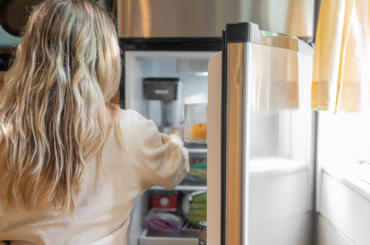In a world where the number of things distracting us from sleep is growing, the amount of sleep our children are getting each night is suffering. A new study found that more than half of U.S. children aren’t getting enough sleep during the week. This sleep deficit causes a reduction in “childhood flourishing” — and if that sounds a little ominous, that’s because it is. In fact it’s a major public health crisis, according to the author of the study’s abstract, Hoi See Tsao, MD, FAAP.
Only 48 percent of school age children in the United States get 9 hours of sleep or more on an average weeknight, as reported in a study that was presented at the American Academy of Pediatrics (AAP) 2019 National Conference in October. The study also shares findings that adequate sleep helps children flourish.
Conducted using the 2016-2017 National Survey of Children’s Health, 49,050 families of children ages 6 through 17 were surveyed. Researchers asked the parents and caregivers how many hours their child slept, as well as questions regarding whether or not their child was flourishing.
What is “childhood flourishing?”
The standards used to establish whether or not a child was flourishing revolved around academic qualities such as whether or not the kids showed interest in learning new things, exhibited concern over whether or not they did well in school, and regularly completed homework. They also asked attention and emotion-related questions such as whether the children stayed calm in challenging situations, and whether they stuck with tasks they started Previous research illustrated that children who show these signs of “childhood flourishing” are more likely to have positive, healthy behaviors.
In addition to identifying ways to help our children flourish and choose healthy behaviors over risky ones, Dr. Tsao further explained the need for such a survey. “Chronic sleep loss is a serious public health problem among children. Insufficient sleep among adolescents, for example, is associated with physical and mental health consequences including increased risk of depression and obesity and negative effects on mood, attention and academic performance.”
There are steps you can take at home to help.
Unfortunately, according to the study, more than half of our children aren’t getting the sleep they need to thrive. So what can parents do?
Dr. Tsao recommends that we “focus on digital media usage, bedtime routines, the length of the school day and school start times” to help increase the amount of sleep our children get per night.
Parents can try some practical ideas like:
- Turning off your home’s wi-fi after a certain time.
- Creating a “home base” for all electronics to stay from a certain time at night until morning.
- Making bedrooms conducive to sleep with white noise machines or darkening shades.
- Establishing a calming, consistent bedtime routine and otherwise promoting good sleep hygiene.
- Getting your child screened for mental health issues, which researchers identified as a possible risk factor for insufficient sleep, if you suspect there might be a problem.
- Checking whether your area is investigating later school start times and what you can do to help advocate for this change.
We all want our children to flourish; it’s our job to make sure they learn good habits and get enough sleep to reach their full potential.







